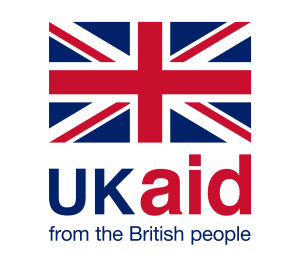Earlier this year, we had the opportunity to collaborate with Internews, with funding from the H2H Network, to strengthen the aid sector in Myanmar. Recognizing the critical importance of ensuring that the right people have access to the right information in the right language, Internews developed courses designed to help humanitarian staff counter dis- and misinformation. CLEAR Global supported this initiative by translating the materials into the Myanmar language, aiming to expand access to vital training resources.
This work is particularly relevant in Myanmar, a country facing complex challenges, including a devastating earthquake that occurred in March 2025. This event has led to a significant loss of life, with the death toll climbing to over 3,600 according to the military government. In the aftermath of crises where urgent relief is needed, having information in the right language can make a crucial difference, supporting both affected communities and humanitarians on the ground, and highlighting that accurate, timely information is itself a vital form of aid.
Prioritizing language, trust, and accessibility
In times of such a profound crisis, the way humanitarian aid is delivered is critical. Organizations on the ground need to provide actionable information to help people make well-informed decisions. This involves communicating clear, usable information on critical topics using channels, formats, and especially languages that people prefer and trust. Working with diverse and trusted local actors, such as NGOs and media, is essential for disseminating messages widely, particularly to hard-to-reach communities. A key challenge in emergencies is countering mis- and disinformation with consistent, accurate information. This requires monitoring rumors in multiple languages, verifying facts, and engaging in a cycle of listening and conversation with communities.
A fundamental aspect of effective communication in humanitarian response is ensuring messages are understood by the affected population. This means considering the diverse dialects and languages of affected people in communication strategies. Additionally, it is crucial to pay special attention to differences in written and spoken language needs to ensure those with lower literacy have equal access to information. Incorporating standard questions on language and communication preferences in needs assessments and disaggregating data by language can reveal where language marginalization might be causing gaps in access to services. Prioritizing trusted channels for disseminating accurate information is vital, ensuring consistent messaging across different levels and languages.
Recognizing the critical need to address information challenges, including the spread of misinformation, Internews developed resources to support local aid providers in Myanmar. Among these resources were two key courses designed to equip humanitarians with the skills needed to navigate complex information environments in a crisis context. CLEAR Global collaborated with Internews in translating these courses into Myanmar language.
Strengthening crisis response through information risk assessment and community engagement
One of the courses, “Information and Risks: A Protection Approach to Information Ecosystems”, is a self-paced online training and guidebook. It supports humanitarians, protection specialists, and local media in assessing and mitigating the risks people face when accessing, creating, and sharing lifesaving information during a crisis. This course highlights how understanding misinformation is crucial for reducing other protection risks. It offers an analytical framework for designing tools and collecting data on information-related protection risks. It also provides guidance on safe and accessible feedback and complaint mechanisms and on how to engage safely with communities.
The second course, “Managing misinformation in Myanmar” (access available once you create an account in the Internews Studio), is an introductory online training designed for humanitarian staff working within the country. The course aims to improve knowledge of what misinformation is and its ramifications in humanitarian contexts. It helps participants distinguish misinformation from other false or unverified information, such as disinformation. A core objective is to reduce the spread and impact of misinformation through community engagement. The course covers key terms and concepts related to responding to misinformation, its impact in humanitarian crises, the psychological reasons people believe and share it, and presents a practical approach involving community listening, verifying information, and responding meaningfully. The sources emphasize that managing misinformation is a core skill for humanitarian workers because it directly impacts the ability to deliver safe, effective, and impactful aid. Addressing misinformation ensures effective communication, fosters community trust, and enhances the overall impact of humanitarian efforts.
This is where the contribution of CLEAR Global became vital. Recognizing the critical importance of reaching local aid providers in their preferred and most accessible language, CLEAR Global assisted Internews in translating these crucial training courses into Myanmar.
By enabling these detailed and practical courses on assessing information risks and managing misinformation to be delivered in the local language, CLEAR Global played a vital role in ensuring effective humanitarian assistance. This translation work helped ensure that staff on the ground in Myanmar could effectively understand and apply the principles of safe community engagement, risk assessment, and misinformation management. Ultimately, this contributes to the delivery of accurate, timely information: a critical form of aid that helps communities to build resilience and recover from crises.
Access the courses:
- Information and Risks: A Protection Approach to Information Ecosystems (Report available in Burmese and Spanish)
- Managing misinformation in Myanmar (access available once you create an account in the Internews Studio).
See also:
- Useful map of the main languages of Myanmar – Myanmar IM Unit
- Myanmar Glossary – CLEAR Global
- Five easy steps to integrate language data into humanitarian and development programmes – CLEAR Global
- CDAC’s key messages and resources on the 2025 Myanmar/Thailand earthquake
This project was funded by the H2H Network’s H2H Fund, which is supported by UK aid – from the British people.


